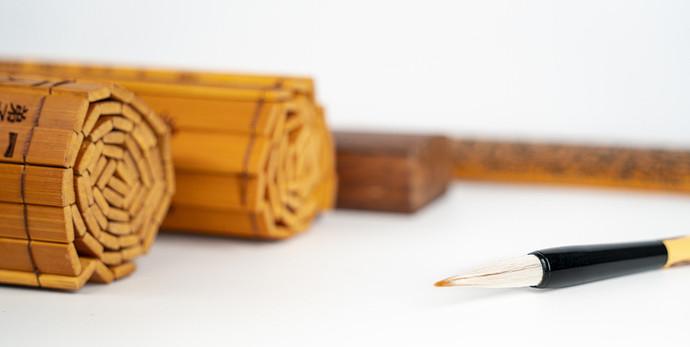
The idiom "spoiled is not alarmed", to the effect that flattery or humiliation is not put in the heart, and the description is not moved by gains and losses. After reading the Old Book of Tang and the New Book of Tang and knowing the origin of this idiom, I suddenly felt that the grain transport officer who was "spoiled" by Lu Chengqing should not be alarmed.
Lu Chengqing was the prime minister of the Tang Dynasty, and during the reign of Emperor Gaozong of Tang, he served as a foreign minister for the examination of officials, and was mainly responsible for the evaluation of officials. In that year, there was a war in the Hexi Corridor, and the imperial court hurriedly transferred grain from Qiantang (present-day Hangzhou). Because of the sudden strong wind, the grain carrier overturned and ran out of grain, and the loss was heavy.
Upon hearing this, Lu Chengqing directly designated the official in charge of transporting grain as "supervising the transportation of grain in the middle and lower levels." Middle-down means to be robbed, which directly affects the political future of the coming year. In the face of the "middle and lower" comments, the official did not say a word and looked at ease.
When Lu Chengqing saw that this person did not defend or complain, he said that the encounter with strong winds could not be prevented by human beings, and changed the evaluation to "middle and middle". The official also did not show any happiness or shame, and remained the same. Lu Chengqing felt that this person's mind was very comparable, so he waved a large pen and changed the examination comment to "not be insulted, should be fixed in the middle and upper.".
Neither the old nor the new Tang Dynasty could find the specific information of the grain transporter. The history books record this incident in detail, and I think it is certain that Lu Chengqing can detect the merits of people and pity talents. In fact, as an examiner and a foreigner, who has the power to evaluate the rank of officials, he should have objectively and comprehensively analyzed the course of events and come up with comments that seek truth from facts, rather than subjectively making judgments.
If you understand the facts early and know that the wind cannot be stopped by human beings, you will not rush to conclude that it is "middle and lower"; first change it to "middle and middle", and then quickly change it to "middle and upper", which really makes the evaluation look like "swinging" and "driving a roller coaster". Throughout the ages, the evaluation is not to select actors, crying when you cry, and laughing when you laugh. Look at the face and look at the expression in this way, and evaluate where there is truth-seeking, fairness and justice to speak of?
Li Yu, a literary scholar in the late Ming and early Qing dynasties, once made a special comment on this matter: Lu Chengqing's repeated judgments were out of pity and warmth, but his heart was good, but things could not be lawd, and he was worried about opening the door of future generations. This view can be described as a three-point argument. There should be objective standards for performance appraisal, and appraisal officials should not put personal likes and dislikes into it, let alone be arbitrary.
Man is an emotional animal, and true pampering and true humiliation are categorically "shocking." Lao Tzu said: "If you are shocked, if you are shocked, you are shocked, you are insulted." Su Shi said in "Xie Zhongshu Sheren Qi": "The province has nothing to do, and it is flattered." Ouyang Xiu said in the "Table of Servants of the Ci Te Transfer Department": "If you are flattered, you are very ordered, and you have no hidden things, and you dare to pour out your sincerity." ”
It can be seen that being flattered is a real psychological reaction of people, but it is reasonable to be "shocked". Like Zhu Xun, one of the "Six Thieves of the Northern Song Dynasty", Emperor Huizong of song touched his shoulder with his hand and embroidered the emperor's golden handprint on his shoulder, which was bound to be disgraceful.
Overall, Lu Chengqing was a good official. When Ouyang Xiu, Song Qi, and Liu Yun compiled the old and new Books of Tang, they all listed them and wrote praises for them. A historical event, combined with social reality, can be analyzed from a variety of angles. The reason why I think that the insult should not be alarmed is that such a shadow can still be found in real life.
As an evaluator, do not arbitrarily "spoil" cadres, you must seek truth from facts; as an evaluator, do not pay too much attention to the words of evaluation. People always have seven emotions and six desires, which are inevitably affected by various factors, and the key is to do what they should do well in a down-to-earth manner. It is necessary to appreciate the bitterness, bitterness, and bitterness of the work of grassroots cadres and truly take the political life of grassroots cadres seriously.